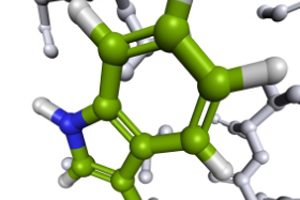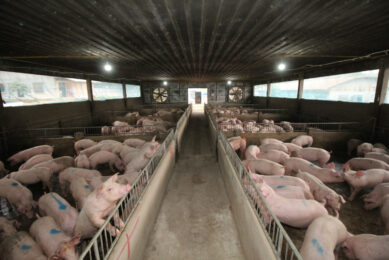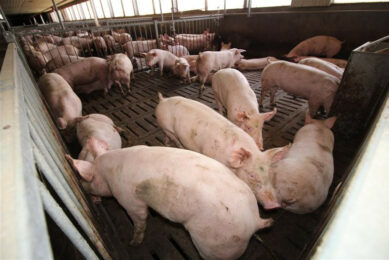Enzyme complex and its effect on nutrient digestibility in weaned pigs

Two experiments were conducted at the China Agricultural University to evaluate the effect of supplementing a corn-soybean meal-based diet with an enzyme complex containing amylase, protease and xylanase on the performance, intestinal health, apparent ileal digestibility of amino acids and nutrient digestibility of weaned pigs.
In the first experiment, 108 piglets weaned at 28 d of age were fed one of three diets containing 0 (control), 100, or 150 ppm enzyme complex for 4 weeks, based on a two-phase feeding program namely 1 to 7 d (phase 1) and 8 to 28 d (phase 2). At the end of the experiment, six pigs from the control group and the group supplemented with 150 ppm enzyme complex were chosen to collect digesta samples from intestine to measure viscosity and pH in the stomach, ileum, and caecum, as well as volatile fatty acid concentrations and composition of the microflora in the caecum and colon.
Increased viscosity
The researchers noticed linear increases (p<0.01) in weight gain, gain: feed ratio and digestibility of gross energy with the increasing dose rate of enzyme supplementation during the whole experiment. Supplementation with enzyme complex increased the digesta viscosity in the stomach (p<0.05) and significantly increased (p<0.01) the concentrations of acetic, propionic and butyric acid in the cecum and colon. Enzyme supplementation also significantly increased the population of Lactobacilli (p<0.01) in the cecum and decreased the population of E. coli (p<0.05) in the colon.
In the second experiment, six crossbred barrows (initial body weight: 18.26±1.21 kg), fitted with a simple T-cannula at the distal ileum, were assigned to three dietary treatments according to a replicated 3×3 Latin Square design. The experimental diets were the same as the diets used in phase 2 in the first experiment. Apparent ileal digestibility of isoleucine (p<0.01), valine (p<0.05) and aspartic acid (p<0.05) linearly increased with the increasing dose rate of enzyme supplementation.
Conclusion
In conclusion, supplementation of the diet with an enzyme complex containing amylase, protease and xylanase improved piglet performance. This is likely a result of improvement in nutrient digestibility, volatile fatty acid concentrations and bacteria ratio in the large intestine.
The article has been published in the Asian Australasian Journal of Animal Science. Read the full article here.











